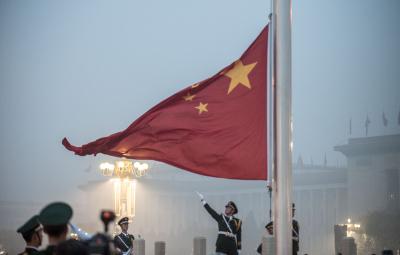It is not just the issue of the origin of Covid 19 or gross human rights violation in Xinjiang that China is encountering today. Soon, the country may also come under scrutiny for gross environmental negligence.
Over the last two decades, China caused serious damage to the environment as it edged out the US in producing rare earth. So much so, that the pollution resulting from rare-earth mining has created soil incapable of supporting crops and water supplies have been contaminated, the Hong Kong based Earth.Org, a not for profit environmental outfit noted.
Rare earth elements comprise a group of 17 chemical elements. While they are all metals, these elements are mostly found together.
Also read: Australian Govt. bankrolls new rare earth metals plant to cut China to size
Demand for rare earth has surged with the increased use of technology. Rare earth components are also required for daily use items such as smart phones, computer memory, rechargeable batteries, magnets, fluorescent lighting among other things.
“China has ignored the environmental issue in developing and mining rare earth,” Satoru Nagao, fellow at Hudson Institute told India Narrative.
“That is the reason China can mine rare earth and dominate the world market,” Nagao said, adding that Beijing has shown little regard for issues relating to human rights as well as environment.
Earth.Org in its report pointed out that in the 1980s, China overtook the US to become the top global producer of rare-earth metals, accounting for some 90 per cent of the material. About 35 per cent of the world’s reserves of rare-earth metals are found in China.
But since these elements tend to be dispersed and mixed in with other elements, the extraction and separation of these is expensive and difficult. It is also fraught with environmental risks.
According to Earth.Org, China built factories close to the mines, so that the raw material can quickly go into production. “This increases efficiency and lowers production costs making it difficult for other countries to compete,” it noted.
Also read: RCEP-the mega trade deal may have a short shelf-life as US mounts pressure on China
However, analysts added that this has led to creation of environmental hazards.
The Xinjiang problem
The Xinjiang situated in the northwestern region of China is one of the largest territories in the country. But this region is also economically weak and highly polluted. “This is drawing unprecedented attention today. Along with human right violation, the issue of environment could come up,” an analyst said.
The region is rich in natural resources and the provides China the necessary link with Central Asia. Thus, a sizeable part of the ambitious multi-trillion Belt and Road Initiative passes through this region. Besides, Xinjiang also provides about 40 per cent of the total coal requirement in the country. “Xinjiang's air pollution stems not only from coal-fired power plants, but also coal mining, vehicle emissions, industrial factories, and underground coal fires,” a study by Wilson Center added.
Sources told India Narrative that Chinese President Xi Jinping and his team are aware of these rising challenges. “The Chinese Communist Party is conscious of the fact that these could pose serious challenges and while the authorities have started taking the right measures, they would take time in undoing what has been done so far,” an analyst said.
Though beryllium cannot be strictly categorised at rare earth, a large quantity of this mineral, otherwise a very rare element, is found in this region.
Foreign policy watchers said that as China comes under the spotlight, several other countries which have economic and trade relations with Beijing are monitoring the geopolitical developments amid the growing strength of the Quadrilateral Security Dialogue or QUAD between the US, India, Japan and Australia.
The much-hyped 15-member Regional Comprehensive Economic Partnership (RCEP) that was inked last November may also not take off.
The QUAD is expected to hold an in-person meeting in September. Small wonder, all eyes are on the US and the QUAD.




















